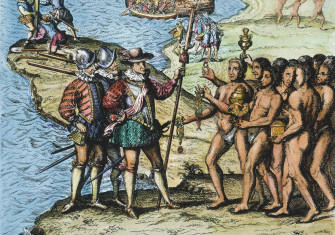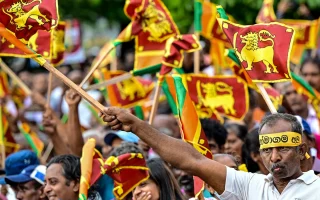lotusyouthcouncil.com – The history of Grenada is a tale of resilience and transformation, beginning with its earliest inhabitants, the Arawaks and Caribs, who settled the island around 100 AD. These indigenous peoples lived in harmony with the lush landscape, cultivating crops and fishing the abundant waters. However, their peaceful existence was disrupted in the late 15th century with the arrival of Christopher Columbus, who claimed the island for Spain in 1498. Despite this claim, Spain did not initially colonize Grenada, leaving the door open for other European powers to vie for control.
French Colonization and the Rise of Plantation Economy
The French established the first permanent European settlement in Grenada in 1649. They introduced a plantation economy, primarily focused on sugar cane, which required a large labor force. This demand led to the tragic transatlantic slave trade, bringing thousands of Africans to Grenada to work under brutal conditions. The French period also saw the introduction of Roman Catholicism and the establishment of a social hierarchy that favored white colonists.
British Rule and the Fight for Freedom
In 1763, Grenada was ceded to the British under the Treaty of Paris. The British continued the plantation system and expanded the cultivation of crops such as cocoa, nutmeg, and cinnamon. The change in colonial rule did not bring immediate freedom for the enslaved population, but it did ignite a series of uprisings and rebellions. The most notable of these was the 1795 revolution led by Julien Fedon, a free man of color, which nearly succeeded in driving the British from the island.
Emancipation and the Road to Independence
The abolition of slavery in 1834 marked a significant turning point in Grenada’s history. While initially only granting freedom to children and requiring a period of “apprenticeship” for adults, full emancipation was achieved in 1838. The post-emancipation era was challenging, as former slaves struggled to find their place in a society still dominated by colonial rule.
The 20th century saw a growing movement for self-governance. Grenada became a member of the British West Indies Federation in 1958, a precursor to independence. However, the federation dissolved in 1962. Undeterred, Grenada continued to push for autonomy and finally achieved independence on February 7, 1974, becoming a parliamentary democracy within the Commonwealth of Nations.
Modern Grenada: A Thriving Independent Nation
Since gaining independence, Grenada has worked to establish itself as a sovereign nation with a strong economy and a vibrant culture. It has faced challenges, including political upheaval and natural disasters, but has persevered. Today, Grenada is known as the “Island of Spice” for its production of nutmeg and mace, and it has a growing tourism industry that celebrates its rich history and natural beauty.
The journey from colonization to independence has been long and complex, but it has shaped Grenada into the resilient and proud nation it is today.




